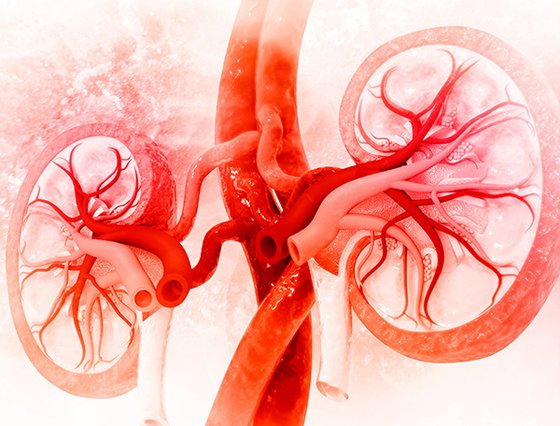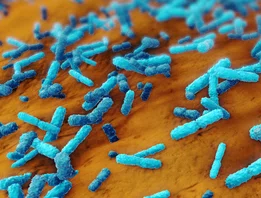


clinical research
Innovative Therapeutic Strategy Shows Promise for Metaplastic Breast Cancer Clinical Outcomes
Innovative Therapeutic Strategy Shows Promise for Metaplastic Breast Cancer Clinical Outcomes
Metaplastic breast cancer (MpBC) is a rare and chemoresistant type of breast cancer with no standardized treatment guidelines. The optimal treatment strategy remains unknown. Aside from surgical resection, treatment methodologies include radiotherapy and chemotherapy. About 80% of MpBCs are triple-negative breast cancers (TNBC). However, the survival rate in MpBC patients is significantly lower than TNBC.

Jenny Chang, MD, MB.ChirB., MHCM
Jenny Chang, MD, MB.ChirB., MHCM, Ernest J. Cockrell, Jr. Presidential Chair, President & CEO, Houston Methodist Academic Institute, Executive Vice President & Chief Academic Officer and Professor of Medicine, Dr. Mary and Ron Neal Cancer Center, reported a unique strategy to improve chemosensitivity and clinical outcomes in MpBC patients. This strategy entails dual inhibition of iNOS (inducible nitric oxide synthase) and phosphoinositide 3 kinase (PI3K) pathways. The study’s findings are published in the peer-reviewed journal Nature Communications.
MpBC accounts for significant mortality globally and has a high risk of metastasis and recurrence. The aggressive nature of MpBC tumors is attributed to activation of oncogenic pathways including iNOS and PI3K signaling. MpBC tumors have molecular aberrations that can be therapeutically targeted.
To better understand the genomic landscape of MpBC patients, Chang and her team analyzed available transcriptomic data from The Cancer Genome Atlas cBioPortal Combined Dataset as well as datasets from the ARTEMIS clinical trial (NCT02276443) that recruited patients with newly diagnosed TNBC and MpBC.
- MpBC and metaplastic-like tumors had higher tumor nitric oxide synthase 2 (NOS2) expression than non-metaplastic TNBC.
- High tumor NOS2 mRNA expression was correlated with significantly worse metastasis-free survival.
The researchers found the following:
Together, these suggested the importance of inhibiting iNOS to improve clinical outcomes in MpBC patients. “Our findings highlight a promising therapeutic combination that could hopefully change the landscape of metaplastic breast cancer treatment,” said Tejaswini Reddy, MD, PhD, the first author of the study. “Translating this research into a National Cancer Institute-funded clinical trial is crucial to improving outcomes for patients facing this rare and aggressive disease. Moreover, this approach may have broader implications, potentially benefiting patients with other cancers with similar biology.

Our findings highlight a promising therapeutic combination that could hopefully change the landscape of metaplastic breast cancer treatment. Translating this research into a National Cancer Institute-funded clinical trial is crucial to improving outcomes for patients facing this rare and aggressive disease. Moreover, this approach may have broader implications, potentially benefiting patients with other cancers with similar biology.

Jenny Chang, MD, MB.ChirB., MHCM
Ernest J. Cockrell, Jr. Presidential Chair,
President & CEO, Houston Methodist Academic Institute
Executive Vice President & Chief Academic Officer, Houston Methodist
Professor of Medicine
Dr. Mary and Ron Neal CancerTitle
Using patient-derived MpBC cell lines and xenograft models, Chang demonstrated that iNOS inhibition increases the efficacy of PI3K inhibitor therapy against MpBC.
“The significance of these NOS2 genetic alterations in relation to disease pathogenesis is currently unknown. However, the significant co-occurrence between NOS2 and PI3K signaling genes implies that these pathways may be influencing tumorigenesis by utilizing similar mechanisms in multiple cancer types, including MpBC,” commented Chang.
Specifically, Chang reported that the NOS inhibitor, L-NMMA, sensitizes MpBC to alpelisib (a selective PI3K inhibitor), and taxane. “This is a significant finding because it offers a promising therapeutic option for one of the most aggressive and difficult-to-treat subtypes of breast cancer,” said Chang. “We have the potential to improve outcomes for patients who currently face limited treatment options and poor prognoses, marking an important step forward in cancer research and therapy.”
Chang hopes these findings will help develop a specific care plan for metaplastic breast cancer patients and improve clinical outcomes.
Tejaswini Reddy, Akshjot Puri, Liliana Guzman-Rojas, Christoforos Thomas, Wei Qian, Jianying Zhou, Hong Zhao, Bijan Mahboubi, Adrian Oo, Young-Jae Cho, Baek Kim, Jose Thaiparambil, Roberto Rosato, Karina Ortega Martinez, Maria Florencia Chervo, Camila Ayerbe, Noah Giese, David Wink, Stephen Lockett, Stephen Wong, Jeffrey Chang, Savitri Krishnamurthy, Clinton Yam, Stacy Moulder, Helen Piwnica-Worms, Funda Meric-Bernstam, Jenny Chang. NOS inhibition sensitizes metaplastic breast cancer to PI3K inhibition and taxane therapy via c-JUN repression. Nat Commun. 2024 Dec 30;15(1):10737. doi: 10.1038/s41467-024-54651-x.
This work was supported, in whole or in part, by NCI grant no. U01 CA268813 (To J. Chang, F. Meric-Bernstam, D. Wink, S. Lockett, S. Wong), R01CA284315, the Breast Cancer Research Foundation (BCRF), CREDO (to J. Chang), R01CA237200, R21CA267386 from NCI (to C. Thomas), R01AI136581 and R01AI162633 from NIAID (to B. Kim), Contract #75N91019D00024 (to S. Lockett), and philanthropic support from Dr. M. Neal and R. Neal.
Daniel Brown
April 2025
Related Articles







